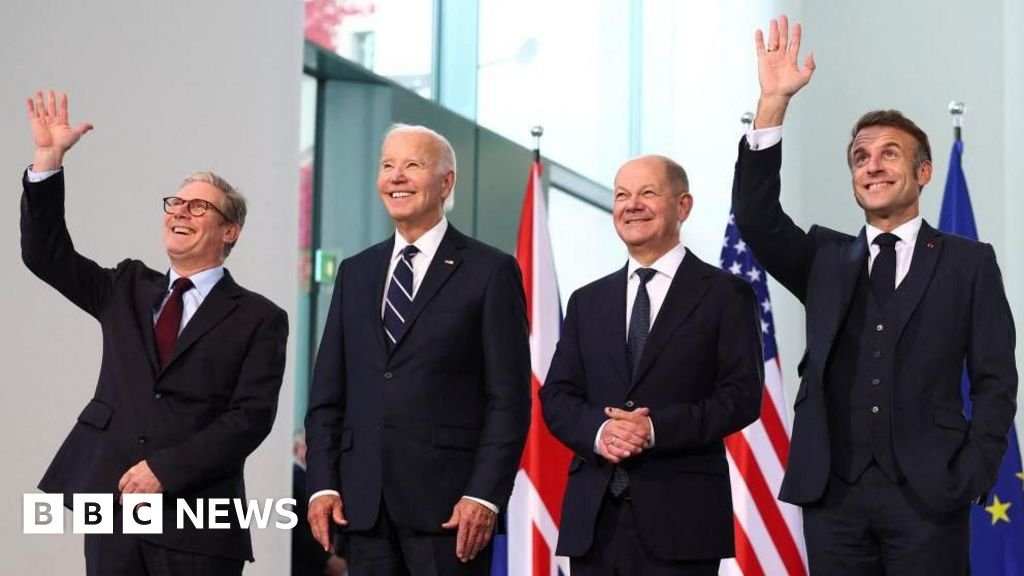The conflict in Ukraine, following a full-scale Russian invasion, is the worst war the continent has seen since World War II.
And, as 80 years ago, Europe relied on coordinated leadership and military support from the United States.
But Biden insisted that much more needs to be done: “We must keep going until Ukraine wins a just and lasting peace… We must maintain our support.”
Much will depend on who wins the November US elections.
Europe is counting on military aid to Ukraine from the USA. Berlin is the second largest donor after Washington, although that volume pales in comparison to its ally on the other side of the Atlantic.
Those days of American generosity are expected to end once Biden leaves the White House.
Even if Democratic nominee Kamala Harris becomes the next US president, Congress will likely turn to other foreign policy priorities, such as China and Taiwan.
As for Trump, during his 2016-2020 administration, relations with NATO – the transatlantic military alliance that has been active since World War II – have been notoriously rocky.
He is known for admiring the “strong” Russian President Vladimir Putin and has not yet publicly said whether he wants Kyiv to emerge victorious from the conflict.
Despite a lot of corridor talk in NATO circles about “Trump protection” of European defense ahead of the upcoming US elections, there is little indication that this has actually happened or that Europe could successfully “go it alone” if it had to .
After a full-scale invasion of Russia in 2022, the Chancellor of Germany, Olaf Scholz promised a “turning point”, a historic turning point where his country would leap over the shadow of its Nazi past and invest heavily in its military to fully contribute to the common defense of the Allies.
German intelligence chiefs warned this week that further Russian investment in its military would allow it to attack NATO by the end of the decade.
But the planned military reconstruction of Germany is mired in bureaucracy. The government has not even agreed on the future defense budget.
Diplomats say Biden is worried about Europe’s resolve, with signs of “Ukraine fatigue” spreading as allies in Europe grapple with their own domestic problems.
Scholz is under considerable pressure at home from the popular far-right and far-left, both sympathetic to the Russian narrative, ahead of next year’s general election.
On Friday, Scholz and Biden were joined in Berlin by other major donors of Ukraine — Great Britain and France.
The Four, as these four major NATO powers are known, also discussed Iran and the wider Middle East. Regarding Ukraine, their joint statement to the press confirmed their determination to continue supporting Kiev.
British Prime Minister Sir Keir Starmer said that Russia was weakening and that the war was consuming 40% of Moscow’s budget.
He said he and other leaders discussed “what additional capabilities, what additional equipment and what additional resources” they could provide to Ukraine. But he did not succeed in the specifics.
Nevertheless, these are the specifics that Ukrainian President Vladimir Zelensky asked about “winning plan”. Features such as a formal invitation to NATO and hands-off in the use of long-range missiles supplied by Britain and France. A request that has been denied to date.
Kyiv sees engaged Biden on the way out, Scholz predicted defeat in next year’s German general election and French President Emmanuel Macron limped politically at home.
For Ukraine, more help from its biggest supporters can’t come soon enough. Lagging behind Russia along its front line, the country is at a particularly vulnerable moment. The rest of Europe as well.

